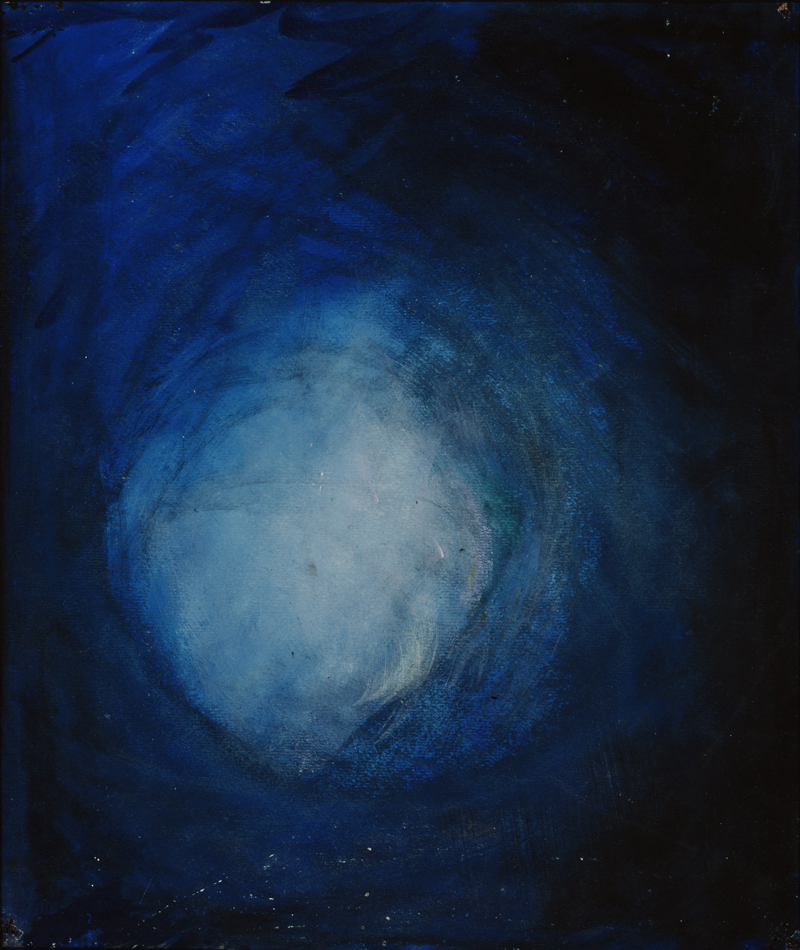
Photograph: Public Domain
Divine unity
“But the soul that ascends to worship the great God is plain and true; has no rose-colour, no fine friends, no chivalry, no adventures; does not want admiration; dwells in the hour that now is, in the earnest experience of the common day,
—by reason of the present moment and the mere trifle having become porous to thought and bibulous of the sea of light.”
“THE OVER-SOUL” by Ralph Waldo Emerson (25th May 25 1803–27th April 1882), is one of those rare pieces of literature that manages to encapsulate the ineffable state of being through not only the profundity and intelligence of its content but also the beauty and lyricism of its prose. Considered to be one of his greatest pieces, the ninth essay in the 1841 edition of the American Transcendentalist’s Essays is testament to the mystical, all-pervading nature of the inner human spirit in relation to the omnipresence of God.
Deeply influenced by Indian philosophy, specifically Advaita Vedanta inherent in the Vedas and the Bhagavad Gita, Emerson also drew inspiration from the nondualism of Graeco-Roman thinkers such as Plato and Plotinus, as well as the Swedish theologian, Emanuel Swedenborg. In time, he would go on to synthesize his own credo regarding the meaning of existence by establishing his concept of the “Over-soul”, a limitless, undifferentiated awareness, akin to the Paramatman of Vedic literature, in which all individual souls are united and sustained.
Expounding his ideas in this intricate and exquisite essay, Emerson outlines how, ordinarily, the human mind is veiled by past sense impressions and ignorance, which form a cloud or sheath between the Over-soul and a being’s true identity. Only when an individual dwells in the present moment, can the plurality of phenomenal experience be transcended, leading to an apperception of the underlying totality of the ONE, whereby immortal love may be embraced and the light of truth may be revealed.
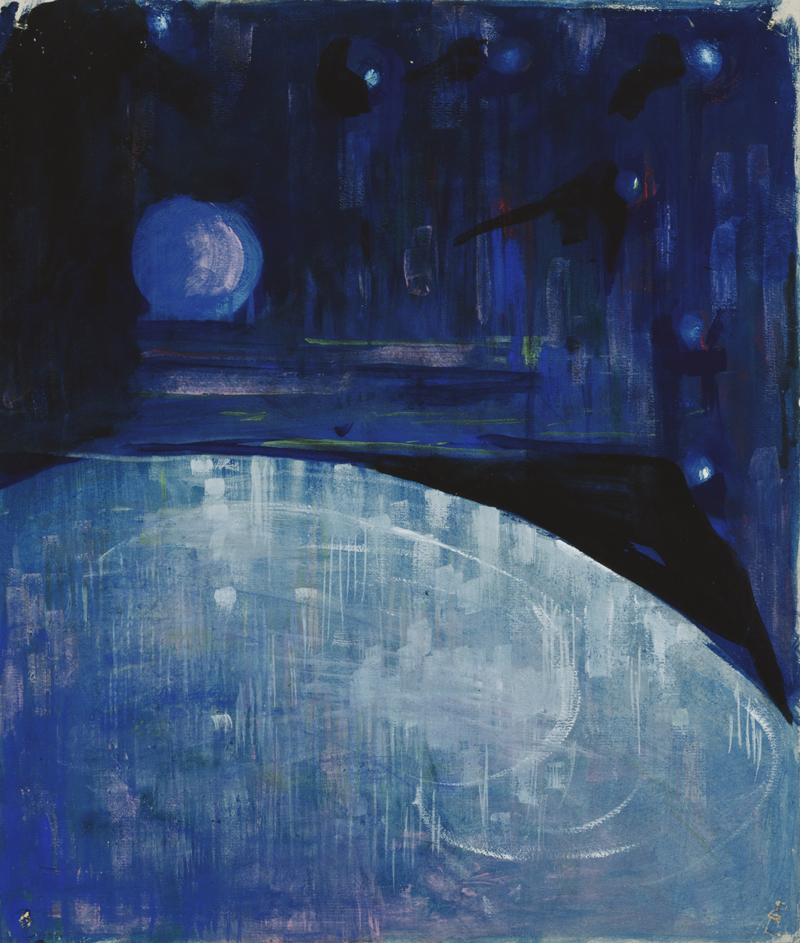
Photograph: Public Domain
The Supreme Critic on the errors of the past and the present, and the only prophet of that which must be, is that great nature in which we rest as the earth lies in the soft arms of the atmosphere; that Unity, that Over-soul, within which every man’s particular being is contained and made one with all other; that common heart of which all sincere conversation is the worship, to which all right action is submission; that overpowering reality which confutes our tricks and talents, and constrains every one to pass for what he is, and to speak from his character and not from his tongue, and which evermore tends to pass into our thought and hand and become wisdom and virtue and power and beauty. We live in succession, in division, in parts, in particles. Meantime within man is the soul of the whole; the wise silence; the universal beauty, to which every part and particle is equally related; the eternal ONE. And this deep power in which we exist and whose beatitude is all accessible to us, is not only self-sufficing and perfect in every hour, but the act of seeing and the thing seen, the seer and the spectacle, the subject and the object, are one. We see the world piece by piece, as the sun, the moon, the animal, the tree; but the whole, of which these are the shining parts, is the soul. Only by the vision of that Wisdom can the horoscope of the ages be read, and by falling back on our better thoughts, by yielding to the spirit of prophecy which is innate in every man, we can know what it saith. Every man’s words who speaks from that life must sound vain to those who do not dwell in the same thought on their own part. I dare not speak for it. My words do not carry its august sense; they fall short and cold. Only itself can inspire whom it will, and behold! their speech shall be lyrical, and sweet, and universal as the rising of the wind. Yet I desire, even by profane words, if I may not use sacred, to indicate the heaven of this deity and to report what hints I have collected of the transcendent simplicity and energy of the Highest Law.
—Ralph Waldo Emerson, ‘The Over-Soul’
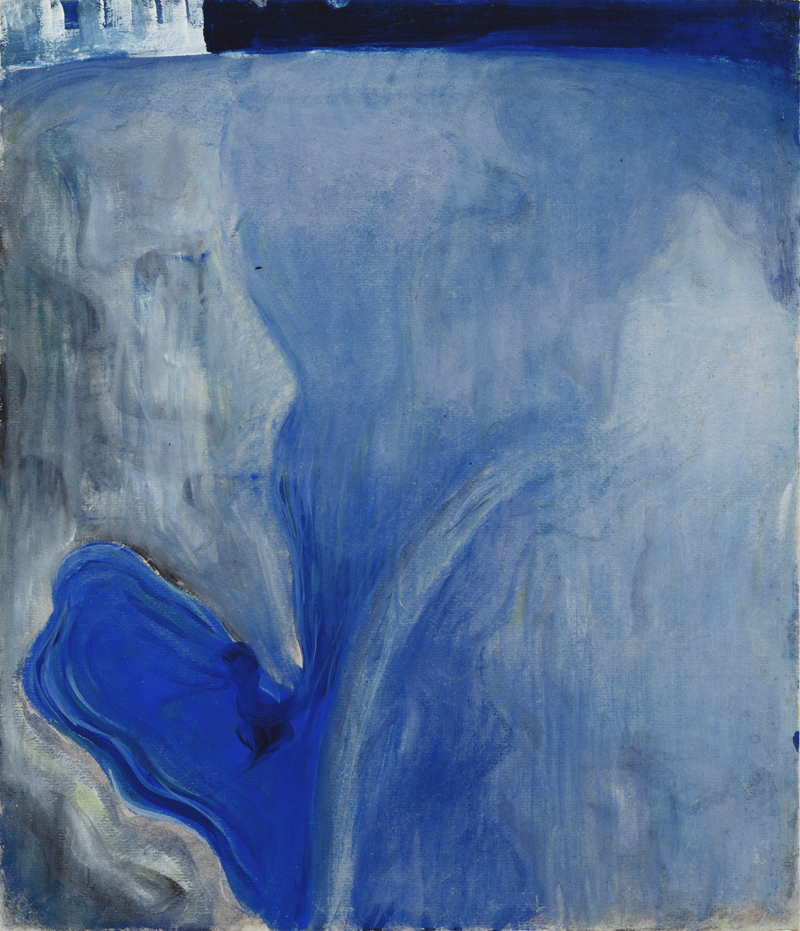
Photograph: Public Domain
If we consider what happens in conversation, in reveries, in remorse, in times of passion, in surprises, in the instructions of dreams, wherein often we see ourselves in masquerade,—the droll disguises only magnifying and enhancing a real element and forcing it on our distinct notice,—we shall catch many hints that will broaden and lighten into knowledge of the secret of nature. All goes to show that the soul in man is not an organ, but animates and exercises all the organs; is not a function, like the power of memory, of calculation, of comparison, but uses these as hands and feet; is not a faculty, but a light; is not the intellect or the will, but the master of the intellect and the will; is the background of our being, in which they lie,—an immensity not possessed and that cannot be possessed. From within or from behind, a light shines through us upon things and makes us aware that we are nothing, but the light is all. A man is the facade of a temple wherein all wisdom and all good abide. What we commonly call man, the eating, drinking, planting, counting man, does not, as we know him, represent himself, but misrepresents himself. Him we do not respect, but the soul, whose organ he is, would he let it appear through his action, would make our knees bend. When it breathes through his intellect, it is genius; when it breathes through his will, it is virtue; when it flows through his affection, it is love. And the blindness of the intellect begins when it would be something of itself. The weakness of the will begins when the individual would be something of himself. All reform aims in some one particular to let the soul have its way through us; in other words, to engage us to obey.
—Ralph Waldo Emerson, ‘The Over-Soul’
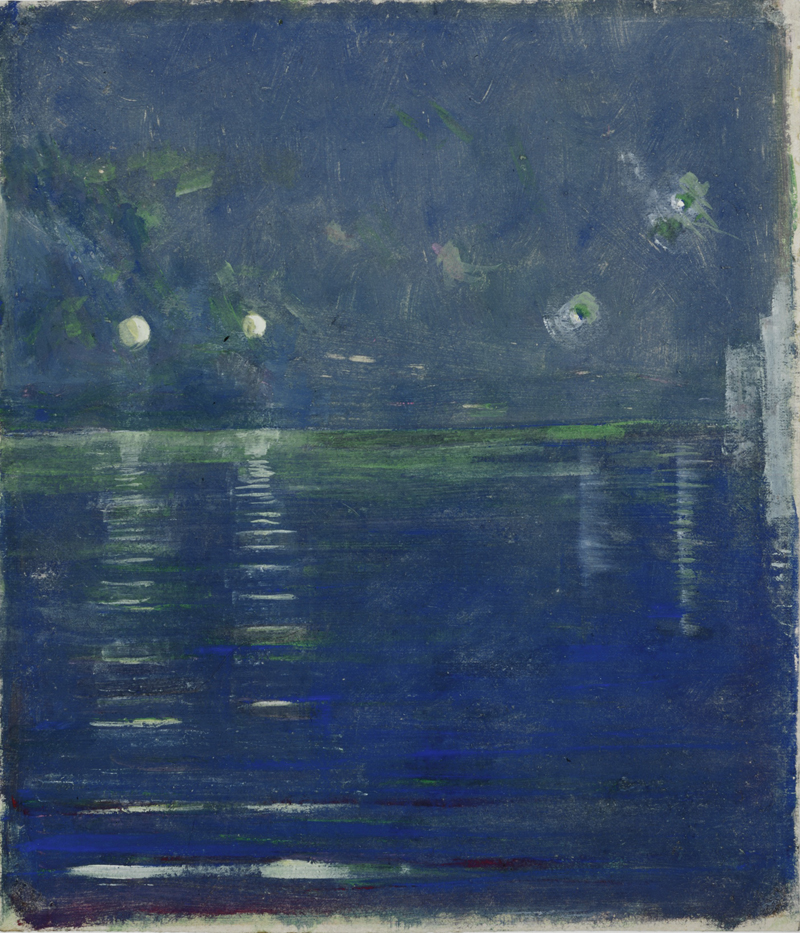
Photograph: Public Domain
Before the revelations of the soul, Time, Space and Nature shrink away. In common speech we refer all things to time, as we habitually refer the immensely sundered stars to one concave sphere. And so we say that the Judgement is distant or near, that the Millennium approaches, that a day of certain political, moral, social reforms is at hand, and the like, when we mean that in the nature of things one of the facts we contemplate is external and fugitive, and the other is permanent and connate with the soul. The things we now esteem fixed shall, one by one, detach themselves like ripe fruit from our experience, and fall. The wind shall blow them none knows whither. The landscape, the figures, Boston, London, are facts as fugitive as any institution past, or any whiff of mist or smoke, and so is society, and so is the world. The soul looketh steadily forwards, creating a world before her, leaving worlds behind her. She has no dates, nor rites, nor persons, nor specialities nor men. The soul knows only the soul; the web of events is the flowing robe in which she is clothed.
—Ralph Waldo Emerson, ‘The Over-Soul’

Photograph: Public Domain
One mode of the divine teaching is the incarnation of the spirit in a form,—in forms, like my own. I live in society, with persons who answer to thoughts in my own mind, or express a certain obedience to the great instincts to which I live. I see its presence to them. I am certified of a common nature; and these other souls, these separated selves, draw me as nothing else can. They stir in me the new emotions we call passion; of love, hatred, fear, admiration, pity; thence come conversation, competition, persuasion, cities and war. Persons are supplementary to the primary teaching of the soul. In youth we are mad for persons. Childhood and youth see all the world in them. But the larger experience of man discovers the identical nature appearing through them all. Persons themselves acquaint us with the impersonal. In all conversation between two persons tacit reference is made, as to a third party, to a common nature. That third party or common nature is not social; it is impersonal; is God. And so in groups where debate is earnest, and especially on high questions, the company become aware that the thought rises to an equal level in all bosoms, that all have a spiritual property in what was said, as well as the sayer. They all become wiser than they were. It arches over them like a temple, this unity of thought in which every heart beats with nobler sense of power and duty, and thinks and acts with unusual solemnity. All are conscious of attaining to a higher self-possession. It shines for all. There is a certain wisdom of humanity which is common to the greatest men with the lowest, and which our ordinary education often labours to silence and obstruct. The mind is one, and the best minds, who love truth for its own sake, think much less of property in truth. They accept it thankfully everywhere, and do not label or stamp it with any man’s name, for it is theirs long beforehand, and from eternity. The learned and the studious of thought have no monopoly of wisdom. Their violence of direction in some degree disqualifies them to think truly. We owe many valuable observations to people who are not very acute or profound, and who say the thing without effort which we want and have long been hunting in vain. The action of the soul is oftener in that which is felt and left unsaid than in that which is said in any conversation. It broods over every society, and they unconsciously seek for it in each other. We know better than we do. We do not yet possess ourselves, and we know at the same time that we are much more. I feel the same truth how often in my trivial conversation with my neighbours, that somewhat higher in each of us overlooks this by-play, and Jove nods to Jove from behind each of us.
—Ralph Waldo Emerson, ‘The Over-Soul’
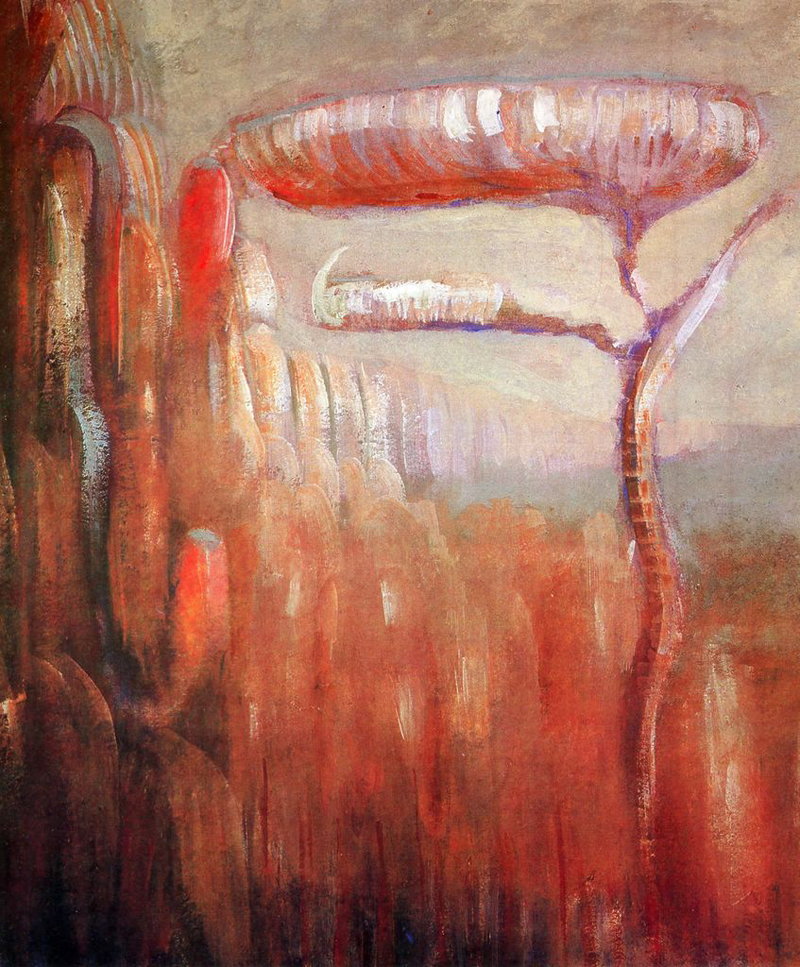
Photograph: Public Domain
The soul is the perceiver and revealer of truth. We know truth when we see it, let sceptic and scoffer say what they choose. Foolish people ask you, when you have spoken what they do not wish to hear, ‘How do you know it is truth, and not an error of your own?’ We know truth when we see it, from opinion, as we know when we are awake that we are awake. It was a grand sentence of Emanuel Swedenborg, which would alone indicate the greatness of that man’s perception,—’It is no proof of a man’s understanding to be able to confirm whatever he pleases; but to be able to discern that what is true is true, and that what is false is false,—this is the mark and character of intelligence.’ In the book I read, the good thought returns to me, as every truth will, the image of the whole soul. To the bad thought which I find in it, the same soul becomes a discerning, separating sword, and lops it away. We are wiser than we know. If we will not interfere with our thought, but will act entirely, or see how the thing stands in God, we know the particular thing, and every thing, and every man. For the Maker of all things and all persons stands behind us and casts his dread omniscience through us over things.
—Ralph Waldo Emerson, ‘The Over-Soul’
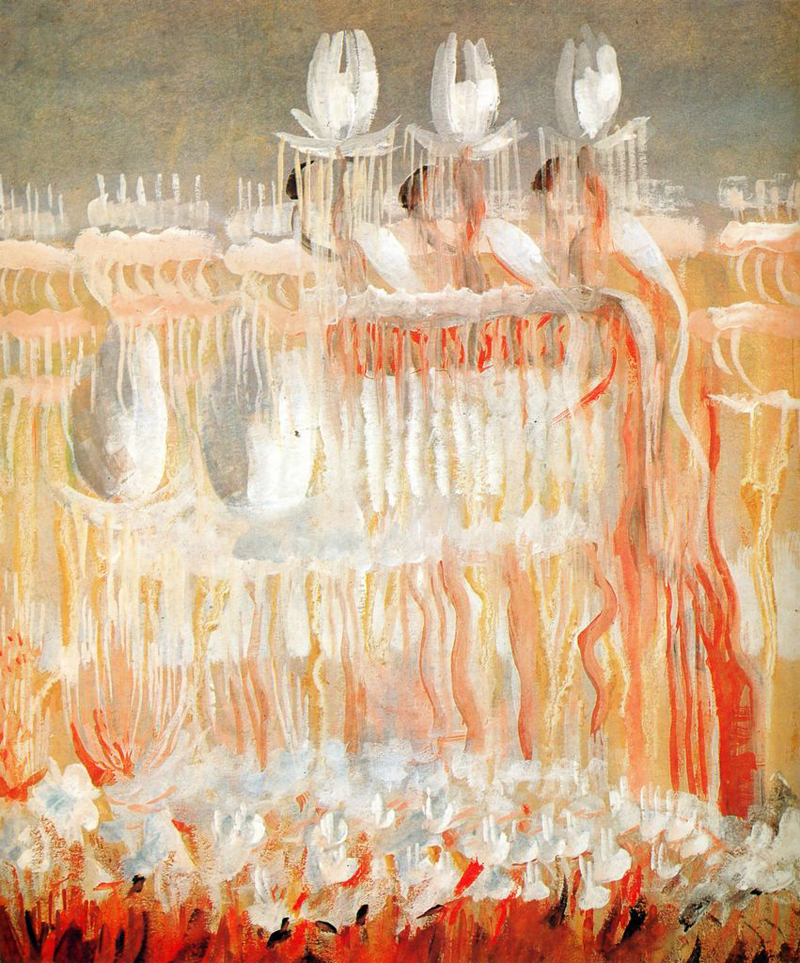
Photograph: Public Domain
We distinguish the announcements of the soul, its manifestations of its own nature, by the term Revelation. These are always attended by the emotion of the sublime. For this communication is an influx of the Divine mind into our mind. It is an ebb of the individual rivulet before the flowing surges of the sea of life. Every distinct apprehension of this central commandment agitates men with awe and delight. A thrill passes through all men at the reception of new truth, or at the performance of a great action, which comes out of the heart of nature. In these communications the power to see is not separated from the will to do, but the insight proceeds from obedience, and the obedience proceeds from a joyful perception. Every moment when the individual feels himself invaded by it is memorable. By the necessity of our constitution a certain enthusiasm attends the individual’s consciousness of that divine presence. The character and duration of this enthusiasm varies with the state of the individual, from an ecstasy and trance and prophetic inspiration,—which is its rarer appearance,—to the faintest glow of virtuous emotion, in which form it warms, like our household fires, all the families and associations of men, and makes society possible. A certain tendency to insanity has always attended the opening of the religious sense in men, as if they had been ‘blasted with excess of light’. The trances of Socrates, the ‘union’ of Plotinus, the vision of Porphyry, the conversion of Paul, the aurora of Behmen, the convulsions of George Fox and his Quakers, the illumination of Swedenborg, are of this kind. What was in the case of these remarkable persons a ravishment, has, in innumerable instances in common life, been exhibited in less striking manner. Everywhere the history of religion betrays a tendency to enthusiasm. The rapture of the Moravian and Quietist; the opening of the internal sense of the Word, in the language of the New Jerusalem Church; the revival of the Calvinistic churches; the experiences of the Methodists, are varying forms of that shudder of awe and delight with which the individual soul always mingles with the universal soul.
—Ralph Waldo Emerson, ‘The Over-Soul’
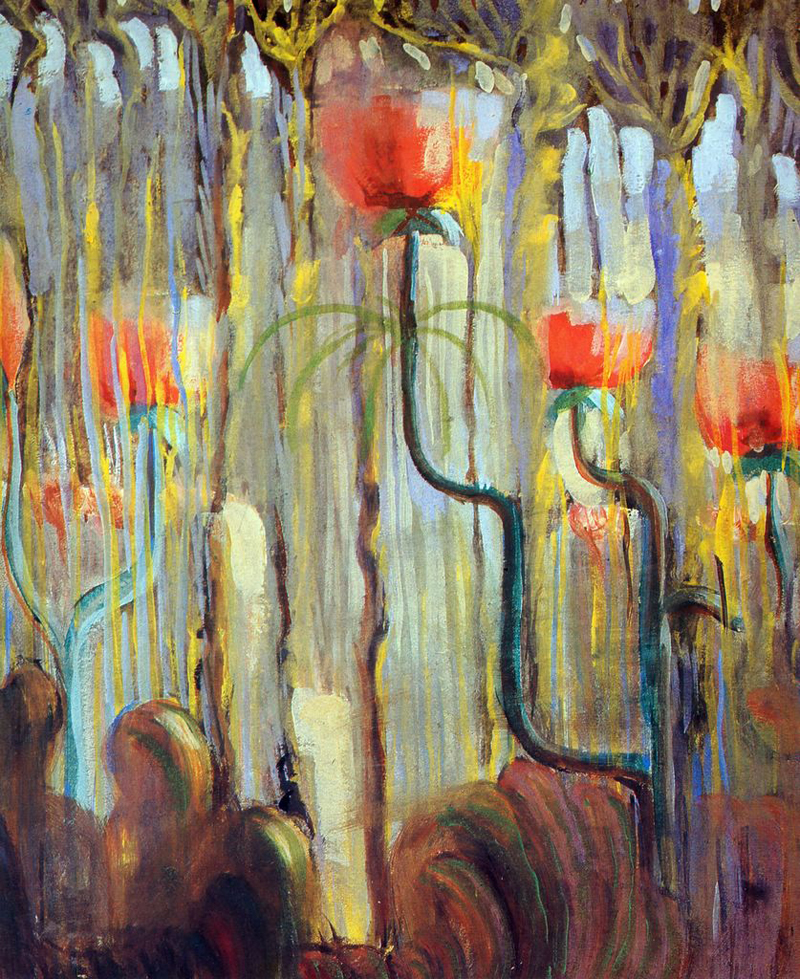
Photograph: Public Domain
We are all discerners of spirits. That diagnosis lies aloft in our life or unconscious power. The intercourse of society, its trade, its religion, its friendships, its quarrels, is one wide, judicial investigation of character. In full court, or in small committee, or confronted face to face, accuser and accused, men offer themselves to be judged. Against their will they exhibit those decisive trifles by which character is read. But who judges? and what? Not our understanding. We do not read them by learning or craft. No; the wisdom of the wise man consists herein, that he does not judge them; he lets them judge themselves and merely reads and records their own verdict. By virtue of this inevitable nature, private will is overpowered, and, maugre our efforts or our imperfections, your genius will speak from you, and mine from me. That which we are, we shall teach, not voluntarily but involuntarily. Thoughts come into our minds by avenues which we never left open, and thoughts go out of our minds through avenues which we never voluntarily opened. Character teaches over our head. The infallible index of true progress is found in the tone the man takes. Neither his age, nor his breeding, nor company, nor books, nor actions, nor talents, nor all together can hinder him from being deferential to a higher spirit than his own. If he have not found his home in God, his manners, his forms of speech, the turn of his sentences, the build, shall I say, of all his opinions will involuntarily confess it, let him brave it out how he will. If he have found his centre, the Deity will shine through him, through all the disguises of ignorance, of ungenial temperament, of unfavorable circumstance. The tone of seeking is one, and the tone of having is another.
—Ralph Waldo Emerson, ‘The Over-Soul’
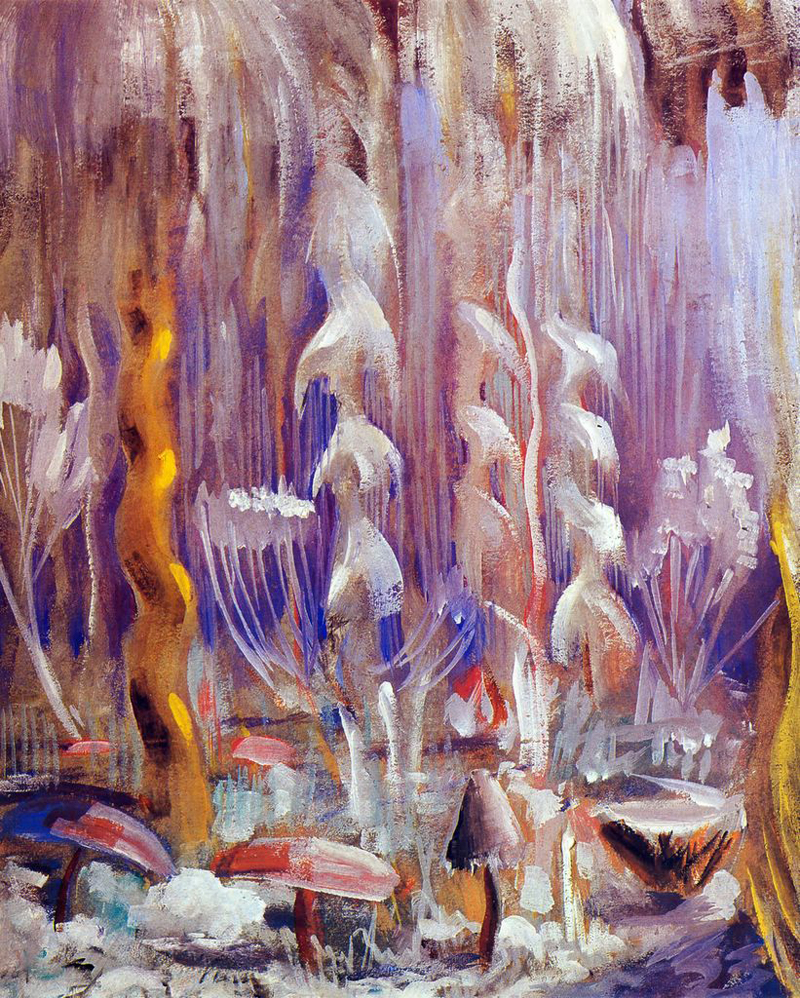
Photograph: Public Domain
This energy does not descend into individual life on any other condition than entire possession. It comes to the lowly and simple; it comes to whomsoever will put off what is foreign and proud; it comes as insight; it comes as serenity and grandeur. When we see those whom it inhabits, we are apprised of new degrees of greatness. From that inspiration the man comes back with a changed tone. He does not talk with men with an eye to their opinion. He tries them. It requires of us to be plain and true. The vain traveller attempts to embellish his life by quoting my lord and the prince and the countess, who thus said or did to him. The ambitious vulgar show you their spoons and brooches and rings, and preserve their cards and compliments. The more cultivated, in their account of their own experience, cull out the pleasing, poetic circumstance,—the visit to Rome, the man of genius they saw, the brilliant friend They know; still further on perhaps the gorgeous landscape, the mountain lights, the mountain thoughts they enjoyed yesterday,—and so seek to throw a romantic colour over their life. But the soul that ascends to worship the great God is plain and true; has no rose-color, no fine friends, no chivalry, no adventures; does not want admiration; dwells in the hour that now is, in the earnest experience of the common day,—by reason of the present moment and the mere trifle having become porous to thought and bibulous of the sea of light.
—Ralph Waldo Emerson, ‘The Over-Soul’
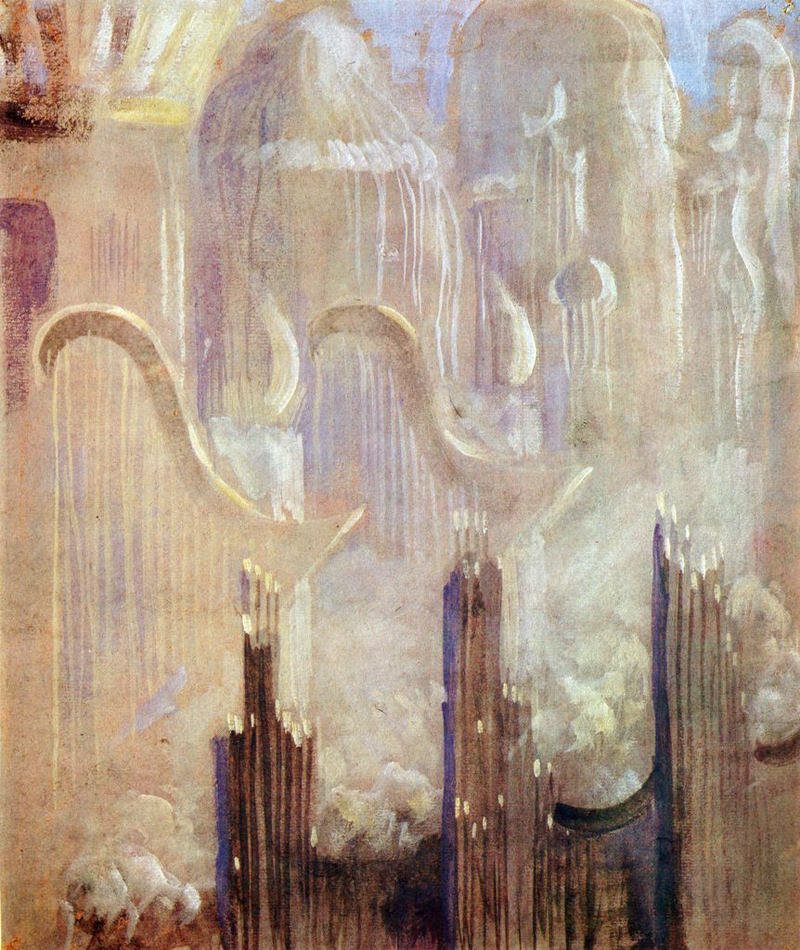
Photograph: Public Domain
Converse with a mind that is grandly simple, and literature looks like word-catching. The simplest utterances are worthiest to be written, yet are they so cheap and so things of course, that in the infinite riches of the soul it is like gathering a few pebbles off the ground, or bottling a little air in a phial, when the whole earth and the whole atmosphere are ours. Nothing can pass there, or make you one of the circle, but the casting aside your trappings, and dealing man to man in naked truth, plain confession, and omniscient affirmation.
—Ralph Waldo Emerson, ‘The Over-Soul’
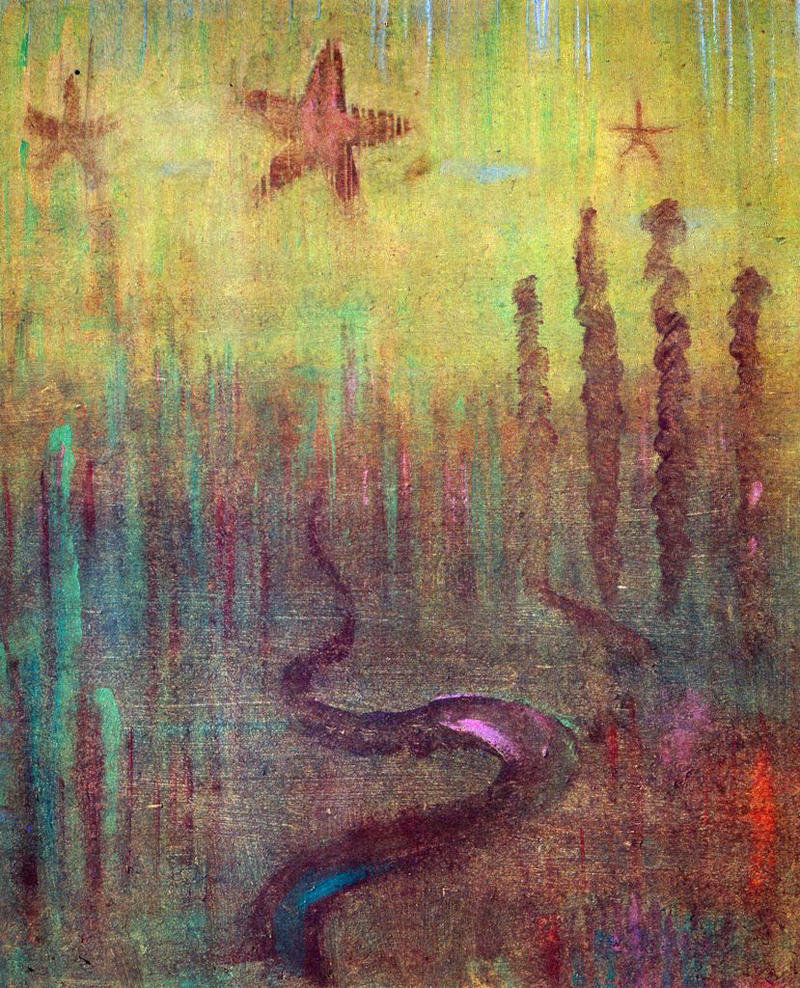
Photograph: Public Domain
Ineffable is the union of man and God in every act of the soul. The simplest person who in his integrity worships God, becomes God; yet for ever and ever the influx of this better and universal self is new and unsearchable. It inspires awe and astonishment. How dear, how soothing to man, arises the idea of God, peopling the lonely place, effacing the scars of our mistakes and disappointments! When we have broken our god of tradition and ceased from our god of rhetoric, then may God fire the heart with his presence. It is the doubling of the heart itself, nay, the infinite enlargement of the heart with a power of growth to a new infinity on every side. It inspires in man an infallible trust. He has not the conviction, but the sight, that the best is the true, and may in that thought easily dismiss all particular uncertainties and fears, and adjourn to the sure revelation of time the solution of his private riddles. He is sure that his welfare is dear to the heart of being. In the presence of law to his mind he is overflowed with a reliance so universal that it sweeps away all cherished hopes and the most stable projects of mortal condition in its flood. He believes that he cannot escape from his good. The things that are really for thee gravitate to thee. You are running to seek your friend. Let your feet run, but your mind need not. If you do not find him, will you not acquiesce that it is best you should not find him? for there is a power, which, as it is in you, is in him also, and could therefore very well bring you together, if it were for the best. You are preparing with eagerness to go and render a service to which your talent and your taste invite you, the love of men and the hope of fame. Has it not occurred to you that you have no right to go, unless you are equally willing to be prevented from going? O, believe, as thou livest, that every sound that is spoken over the round world, which thou oughtest to hear, will vibrate on thine ear! Every proverb, every book, every byword that belongs to thee for aid or comfort, shall surely come home through open or winding passages. Every friend whom not thy fantastic will but the great and tender heart in thee craveth, shall lock thee in his embrace. And this because the heart in thee is the heart of all; not a valve, not a wall, not an intersection is there anywhere in nature, but one blood rolls uninterruptedly an endless circulation through all men, as the water of the globe is all one sea, and, truly seen, its tide is one.
—Ralph Waldo Emerson, ‘The Over-Soul’

Photograph: Public Domain
It makes no difference whether the appeal is to numbers or to one. The faith that stands on authority is not faith. The reliance on authority measures the decline of religion, the withdrawal of the soul. The position men have given to Jesus, now for many centuries of history, is a position of authority. It characterizes themselves. It cannot alter the eternal facts. Great is the soul, and plain. It is no flatterer, it is no follower; it never appeals from itself. It believes in itself. Before the immense possibilities of man all mere experience, all past biography, however spotless and sainted, shrinks away. Before that heaven which our presentiments foreshow us, we cannot easily praise any form of life we have seen or read of. We not only affirm that we have few great men, but, absolutely speaking, that we have none; that we have no history, no record of any character or mode of living that entirely contents us. The saints and demigods whom history worships we are constrained to accept with a grain of allowance. Though in our lonely hours we draw a new strength out of their memory, yet, pressed on our attention, as they are by the thoughtless and customary, they fatigue and invade. The soul gives itself, alone, original and pure, to the Lonely, Original and Pure, who, on that condition, gladly inhabits, leads and speaks through it. Then is it glad, young and nimble. It is not wise, but it sees through all things. It is not called religious, but it is innocent. It calls the light its own, and feels that the grass grows and the stone falls by a law inferior to, and dependent on, its nature. Behold, it saith, I am born into the great, the universal mind. I, the imperfect, adore my own Perfect. I am somehow receptive of the great soul, and thereby I do Overlook the sun and the stars and feel them to be the fair accidents and effects which change and pass. More and more the surges of everlasting nature enter into me, and I become public and human in my regards and actions. So come I to live in thoughts and act with energies which are immortal. Thus revering the soul, and learning, as the ancient said, that ‘its beauty is immense’, man will come to see that the world is the perennial miracle which the soul worketh, and be less astonished at particular wonders; he will learn that there is no profane history; that all history is sacred; that the universe is represented in an atom, in a moment of time. He will weave no longer a spotted life of shreds and patches, but he will live with a divine unity. He will cease from what is base and frivolous in his life and be content with all places and with any service he can render. He will calmly front the morrow in the negligency of that trust which carries God with it and so hath already the whole future in the bottom of the heart.
—Ralph Waldo Emerson, ‘The Over-Soul’
Post Notes
- Ralph Waldo Emerson: Nature
- Ralph Waldo Emerson: Waldeinsamkeit
- Henry David Thoreau: Walking
- The Cloud of Unknowing
- Michel de Montaigne: On Solitude
- Rousseau: Meditations of a Solitary Walker
- Emily Dickinson: A Woman Before Her Time
- Walt Whitman & Jan Kersschot: The Body Electric
- Leo Tolstoy: A Confession

